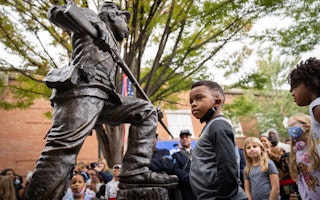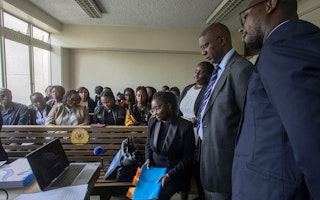NEW YORK—The U.S. Supreme Court’s rulings today striking down race-based admissions in higher education place new barriers in the path of students of color already contending with systemic racial discrimination in our schools and reverse a half-century of progress on racial equity in education.
Affirmative action has opened the doors to opportunity and socioeconomic mobility for communities that have historically been shut out of higher education because of their race, ethnicity, income, or identity. Race-conscious remedies for discrimination are grounded in the Constitution and nearly 50 years of Supreme Court precedent.
The rulings in Students for Fair Admissions v. President and Fellows of Harvard College and Students for Fair Admissions v. University of North Carolina represent a radical assault on these traditions by a far-right majority on the Court.
Despite this setback, we will continue to work together with our grantees, partners, and allies to ensure that all students have access to quality education, with the knowledge that when everyone has access—whatever their color or heritage—we all benefit.
“These decisions deny students of color a fair shot, and deny this country the benefits of the immense, diverse talents of the full American community,” said Laleh Ispahani, executive director of Open Society-U.S. “In light of today's rulings, the Open Society Foundations remain firmly committed to advancing a multiracial, multiethnic democracy with human dignity, in every sector of American life, regardless of race, gender, ethnicity, religion, or country of origin.”
Read more
Racial Justice
Litigating for the Statistical Visibility of Afrodescendants in Colombia

Afro-Colombians have long endured social and systemic invisibility. Through legal action, civil society is fighting the miscount of the Black population for a more accurate representation.
Power and Public Memory
Q&A: Why Monuments Must Change

We tend to think of monuments as being immutable, permanent structures. But the nonprofit group Monument Lab is on a mission to change the way the U.S. thinks about monuments and their relationship with power and public memory.
Hate Speech
In Africa, Taking on Viral Hate

Facebook users in some African countries are exposed to higher levels of violent content, hate speech, and misinformation. The consequences can be deadly. A legal challenge seeks to force the social media giant to fix it.